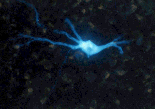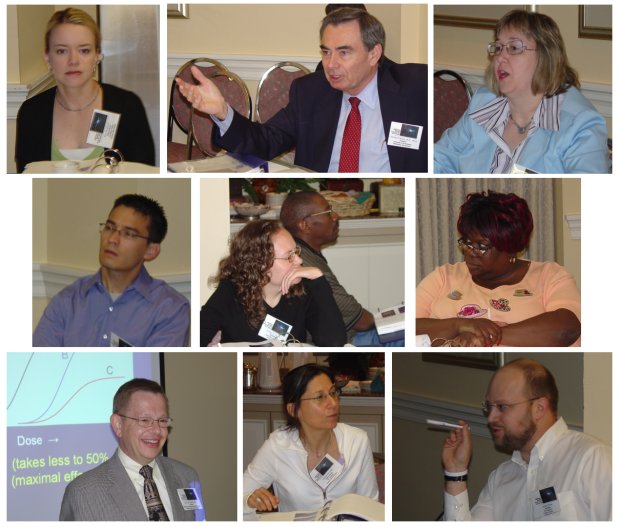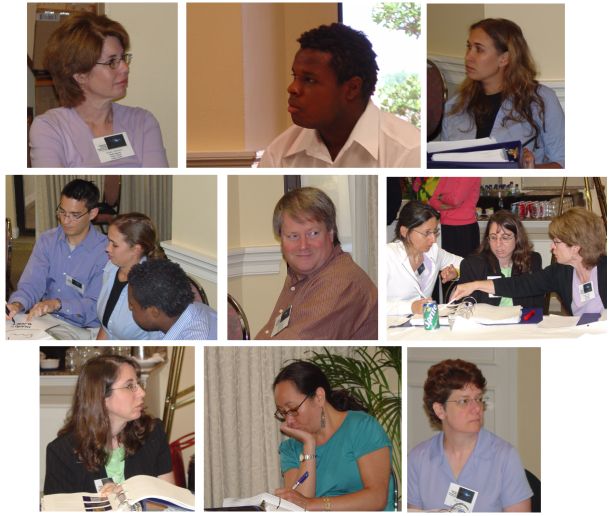Maria Antunano
Assistant Editor
El Nuevo Herald
Miami, Florida
Hattie
Bernstein
Health Reporter
The Telegraph
Hudson, New Hampshire
Kim
Bradford
Editorial Writer
The News Tribune
Tacoma, Washington
Deborah
Circelli
Social Services Reporter
The Daytona Beach News-Journal
Daytona Beach, Florida
Leonard Colvin
Chief Reporter
New Journal and Guide
Norfolk, Virginia
Maria Coole
Reporter
Sunday News
Lancaster, Pennsylvania
Henry Hurst
Staff Writer
AFRO American Newspaper
Baltimore, Maryland
Susan Johnson
Consumer Health Writer
Tampa Tribune
Tampa, Florida
Jennifer Kelleher
Reporter
Newsday
Melville, New York
|
|
Bridget Kuehn
Staff Writer
JAMA Medical News
Chicago, Illinois
Jo-Ann Livingston
Managing Editor
Waxahachie Daily Light
Waxahachie, Texas
Kirk Mitchell
Crime Reporter
The Denver Post
Denver, Colorado
Valerie Nienberg
Health Reporter
Scripps Treasure Coast Newspaper
Stuart, Florida
Laurie Nikolski
Associate Editor
The Journal News
White Plains, New York
Dante Ramos
Deputy Editorial Page Editor
The Times - Picayune
New Orleans, Louisiana
Joseph Rose
Staff Writer
The Oregonian
Portland, Oregon
Yvonne Samuel
Education Reporter
St. Louis Post-Dispatch
St. Louis, Missouri
Leslie Tucker
Community Editor
Farragut Press
Knoxville, Tennessee
|
On the introduction to pharmacological terms:
"Engaging, answered questions with easy-to-understand anecdotes."
"J. Strandhoy was excellent: clear, warm, engaging, and respectful of
his audience."
"Very knowledgeable, great at helping our non-scientific minds, such
as mine, understand basic & complex terms & concepts although don't
assume we know dopamine."
On
the history of addiction in America:
"I enjoyed seeing the old advertisements. It put drug use into historic
perspective."
"Illustrations/ad/cartoons were wonderful - so nice to giggle during
a lecture & 'see the science'"
On
animal models of addiciton:
"Enjoyed monkey video - helpful to see impact of addiction on animals."
"Good overview in laymen's terms."
On
the neurobiology of addiction:
"It was helpful to learn how people are impacted by various drugs
especially the misconception of pain pills."
"One of the most interesting segments - especially helpful were
the distinctions made between drugs & their addictiveness."
"Wonderful: Accessible, made complex ideas easy to grasp; enthusiastic
and engaging - plus warm and generous with his time, responses to questions."
On
the pharmacology of addiction:
"A little technical but enjoyed game. The game helped to better
explain the technical terms."
"Lots of technical info in a short period of time."
On
the prevention of substance abuse:
"Session was very relatable, story ideas generated (college students/youth).
Hearing about various studies was helpful as a future reference."
On
treating the offender population:
"This was very good. He helped generate a great story idea."
"Provided practical info for story-seeking journalists; helpful,
entertaining, well-organized."
"Session was very helpful for child welfare and treatment stories
on depending drug court."
On
evaluating treatment:
"Session was entertaining and helpful information for future stories
on treatment facilities in my area."
"Thorough! Good presentation - solid information - Good presenter."
|
|
On
scientifically reliable sources of information on the internet:
"Good research sources."
"Very helpful - a readable list of links would be great; the PowerPoint
printout is hard to read."
On
the development of medications:
"I enjoyed the presentation on medications and real life examples
of people treated."
"Wonderful, Lots of good info/passionate speaker."
Overall
impressions:
"It's
amazing how much this crams into two days. Very worthwhile to attend."
"Very impressive group of speakers; well-designed program is long
enough for detailed info but not so long to become boring."
"Packed a tremendous amount of information into a very short amount
of time in a way that was easy to understand & high interest."
How
participants think the workshop will help them with their reporting
on substance abuse:
"This gave me a whole other side to explore in writing about drugs/addiction
issues. It will certainly help me ask intelligent questions and understand
the answers on stories such as on our county's drug counseling providers."
"My understanding of addiction is almost completely changed by
the information from this seminar."
"Addiction is a much more complex issue than what I imagined."
What
participants liked most about the workshop:
"Order of presentation/organization of program, enthusiasm of speakers
for their topic & their ability to talk to non-scientists - great
teacher!"
"Provides resource for finding drug experts. Very detailed."
"Nora Volkow's presentation was invaluable to me in connecting
the dots from earlier presentations."
|
David Friedman, Ph.D.
Director, Addiction Studies Program for Journalists
Professor
Department of Physiology and Pharmacology
Wake Forest University School of Medicine
Winston-Salem, North Carolina Sue
Rusche
Co-Director
Addiction Studies Program for Journalists
Chairman, President, and CEO
National Families in Action
Atlanta, Georgia
Robert DuRant, Ph.D.
Professor & Vice Chair
Wake Forest University School of Medicine
Department of Pediatrics
Winston-Salem, North Carolina
Douglas
B. Marlowe, J.D., Ph.D.
Director, Section on Criminal Justice Research
Treatment Research Institute
University of Pennsylvania
Philadelphia, Pennsylvania
A.
Tom McLellan, Ph.D.
Director, Treatment Institute
University of Pennsylvania
Philadelphia, Pennsylvania
|
|
Charles P. O'Brien, M.D., Ph.D.
Kenneth Appel Professor
Vice Chair of Psychiatry
University of Pennsylvania
Philadelphia VAMC/MIRECC
Philadelphia, Pennsylvania
Rochelle
“Shelly” Schwartz-Bloom, Ph.D.
Professor of Pharmacology
Duke University Medical Center
Department of Pharmacology & Cancer Biology
Durham, North Carolina
Jack
W. Strandhoy, Ph.D.
Professor
Wake Forest University School of Medicine
Department of Physiology and Pharmacology
Winston-Salem, North Carolina
Nora
D. Volkow, M.D.
Director, National Institute on Drug Abuse
National Institutes of Health
Bethesda, Maryland
|
Friday, June 17
8:00
Welcome and Introductions
David Friedman and Sue Rusche
8:15
Introduction to Pharmacological Terms
Jack Strandhoy
9:00
A History of Drug Abuse and Addiction in the U.S.
Sue Rusche
10:00
Animal Models of Addiction
Jack Strandhoy
10:30
Break
10:45
The Neurobiology of Addiction
David Friedman
12:30
Lunch
1:30
The Pharmacology of Addiction
Shelly Schwartz-Bloom
3:00
Break
3:15
The Prevention of Tobacco, Alcohol and Other Substance Use Among
Children, Adolescents, and Young Adults
Robert DuRant
4:30
Evaluations
4:45
Adjourn
6:00
Reception
7:30
Dinner
|
|
Saturday, June 18
9:00
Is Addiction Treatment Effective?
Tom McClellan
10:30
Break
10:45
Treating the Offender Population
Doug Marlowe
12:15
Lunch
1:30
Scientifically Reliable Information About Drugs
Sue Rusche
2:00
A Word from the Director of the National Institute on Drug Abuse
Nora Volkow
3:00
Break
3:15
The Science of Addiction: Developing Medications
Charles O'Brien
4:45
Evaluations
5:00
Introduction to CPDD and CPDD Mentors
5:30
Adjourn |



